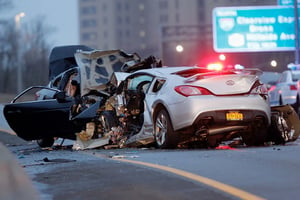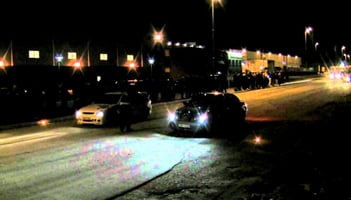Street racing accidents, often resulting in wrecks and crashes, are tragic events that highlight...
Is Street Racing a Felony?
Street racing, a form of illegal and dangerous driving, has significant legal consequences that vary based on the jurisdiction and circumstances of the offense. In many places, street racing is considered a serious offense and can result in felony charges under certain conditions. Let’s explore the legal aspects of street racing, including whether it constitutes a felony, the factors that determine the severity of charges, and the potential consequences for those involved.
Is Street Racing a Felony?
Whether street racing is considered a felony depends on various factors, including the laws of the specific jurisdiction, the nature of the offense, and any resulting injuries or fatalities. In general, street racing can lead to felony charges if certain aggravating factors are present. These factors may include:
- Prior Offenses: Repeat offenders may face felony charges for street racing, especially if previous convictions exist for similar offenses.
- Speeding and Reckless Driving: Engaging in street racing while speeding significantly above the legal limit and exhibiting reckless driving behaviors can elevate the offense to a felony level.
- Injuries or Fatalities: If a street racing incident results in injuries or fatalities to drivers, passengers, pedestrians, or other individuals, the responsible parties may be charged with felony offenses such as vehicular manslaughter or homicide.
- Property Damage: Street racing accidents that cause substantial property damage, including damage to vehicles, buildings, or infrastructure, can lead to felony charges.
- Endangerment of Others: Reckless behavior that endangers the lives of others on the road, such as racing in crowded areas or during adverse weather conditions, may result in felony charges.
Legal Consequences of Street Racing Felonies
If street racing is charged as a felony, the legal consequences can be severe and may include:
- Prison Sentence: Felony street racing convictions can result in significant prison sentences, ranging from several months to multiple years, depending on the jurisdiction and specific circumstances.
- Fines and Penalties: Felony convictions often carry substantial fines, court costs, and restitution payments to compensate victims for damages or injuries.
- Driver’s License Revocation: Convicted street racers may face long-term or permanent revocation of their driver’s licenses, limiting their ability to legally operate a vehicle.
- Vehicle Impoundment: Vehicles used in street racing offenses may be impounded or forfeited as part of the legal penalties.
- Criminal Record: Felony convictions result in a permanent criminal record, which can have long-term consequences for employment, housing, and other aspects of life.
- Probation and Community Service: In addition to prison sentences and fines, convicted street racers may be required to serve probation, undergo counseling or educational programs, and perform community service hours.
Preventing Felony Street Racing Offenses
To prevent street racing offenses from escalating to felony levels, it is essential to address the root causes and implement proactive measures such as:
- Education and Awareness: Educating the public, especially young drivers, about the dangers and legal consequences of street racing can deter illegal activities.
- Enforcement of Laws: Strict enforcement of traffic laws, including anti-street racing laws and speeding regulations, is crucial to identify and apprehend offenders.
- Safe Alternatives: Providing safe and legal alternatives for racing enthusiasts, such as organized track events and performance driving schools, can channel their passion for speed in a controlled environment.
- Technological Solutions: Utilizing technology such as speed enforcement cameras, vehicle tracking systems, and automated license plate recognition can aid in enforcement efforts and deter street racing.
- Community Engagement: Engaging communities, law enforcement agencies, local governments, and advocacy groups in collaborative efforts to address street racing issues and promote responsible driving behaviors can create a safer road environment for everyone.
Street racing can indeed be charged as a felony under certain circumstances, especially when aggravating factors such as prior offenses, injuries, or fatalities are involved. Understanding the legal consequences of street racing, implementing preventive measures, and promoting responsible driving habits are crucial steps in reducing the incidence of illegal and dangerous racing activities.


